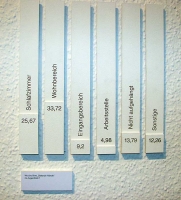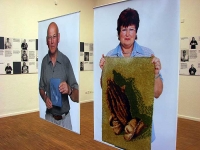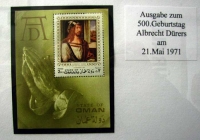As usual, Transblawg does not close down for Thanksgiving, but if it did, I am sure I would be eating turkey.
Instead, let’s consider the presidential and gubernatorial turkey pardon.
Animal Blawg (Transcending Speciesism Since October 2008) considers the problem (with more links):
But I do have something to say about the Thanksgiving ritual, particularly the embedded legal contradiction in the practice (discussed by Luis below) of pardoning turkeys. To pardon means “to release (a person) from further punishment for a crime.” At Thanksgiving, however, the concept of the pardon gets up-ended. The turkeys supposedly petitioning for clemency have committed no wrong. Their lives consist of brutal mistreatment with slaughter soon to follow (the latter, I might add, will occur devoid of any of the protections of the Humane Methods of Slaughter Act since under Department of Agriculture regulations, birds are not “animals” and thus not legally entitled to a merciful death). If anything, egregious crimes have been wrought upon these birds. Yet, every year, one or two are selected at random and “pardoned.” This ritual amounts to transferring the guilt of the perpetrators on to the victims and then forgiving a token few of them in a bizarre act of self-absolution by proxy.
I don’t know what the situation is in Germany, but I assume that birds are classified as animals, since Tier applies to them in everyday German. Animals are no longer things in the Civil Code, and since 2002 they have been protected to some extent under Article 20a of the Basic Law (Grundgesetz).
A turkey has been presented to the president of the USA every year since 1947, apparently. President Bush senior was apparently the first president of the USA to pardon a turkey. However, state governors can pardon turkeys too (see Lame Duck to Pardon Turkey) – for instance, the tradition goes back to 1949 in Alabama (where the turkey is always named Clyde). So it looks as if the White House took over a state tradition. The video of Sarah Palin after her pardon, with unpardoned turkeys being slaughtered in the background, is famous.
What happens to the turkeys pardoned by President Bush? See Where Do Turkeys Go After Being Pardoned by the President?
Liberty and Freedom were whisked off to Frying Pan Park’s Kidwell Farm in Herndon, Virginia—about 30 minutes west of Washington—where the pardoned turkeys live. Or die?
…
Those who visit Frying Pan Park will be disappointed to learn that there is not a flock of presidential “pardonees” to welcome the newcomers as they arrive in a large white van. With the enormous weight these birds carry, they usually die before the arrival of the next Thanksgiving. Farmer Todd Brown buries the turkeys on the 98-acre property.
I don’t know how old turkeys become if not stuffed for the table to a weight of 20 kilos or more. It sounds as if one Clyde (one of many in Alabama) might have lived a few years longer if he hadn’t been killed by a coyote.
Oh dear, all this doesn’t sound very holiday-like. I’d better go away and consider what I have to give thanks for (this includes a lot of work).
LATER NOTE: You could sell the leftovers.









